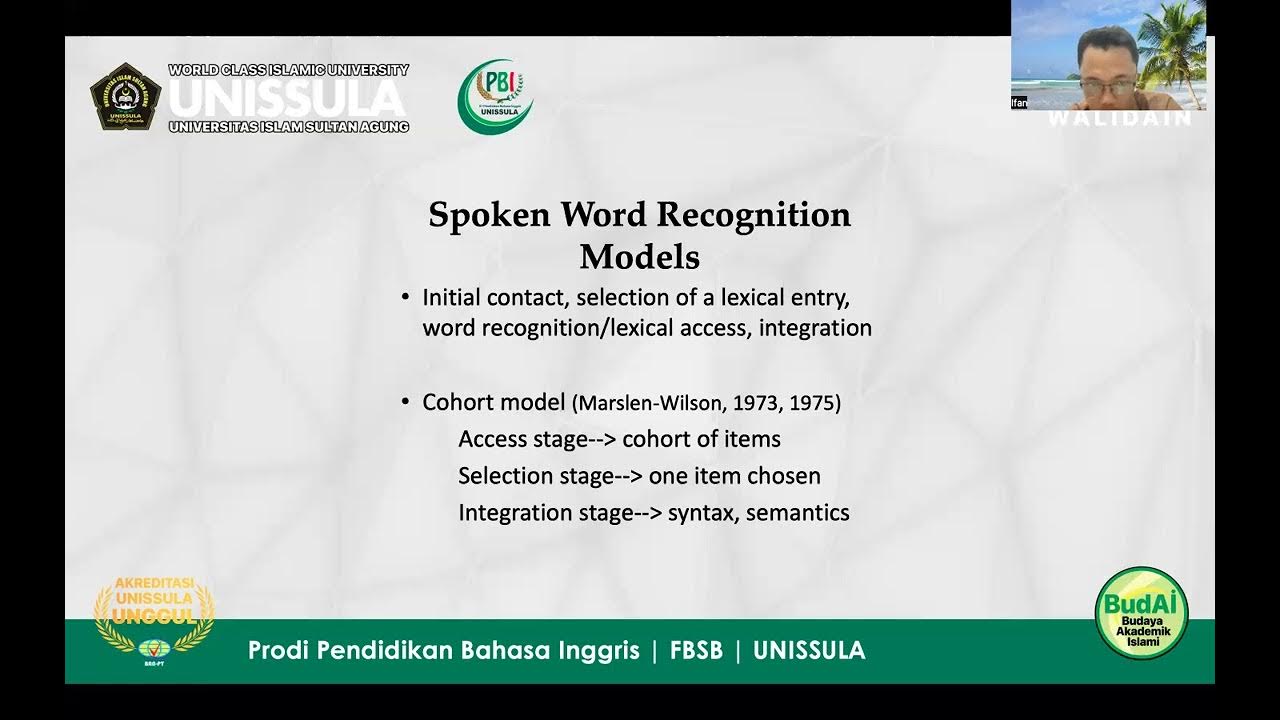McREL - The Five Stages of Second Language Acquisition
Summary
TLDRThe script emphasizes the importance of understanding the stages of second language acquisition to effectively support English language learners. It introduces five stages parallel to first language acquisition: Preproduction, Early Production, Speech Emergence, Intermediate, and Advanced Fluency. Teachers are encouraged to connect new concepts to familiar experiences, such as a child's first language development, to facilitate comprehension and progression through these stages without stagnation.
Takeaways
- 📚 Teaching academic language alongside content is crucial for English language learners.
- 🌐 Understanding the stages of second language acquisition helps educators address the zone of proximal development effectively.
- 🔍 Educators must identify the current stage of English language learners to facilitate their progression to the next level.
- 🔑 There are five distinct stages of second language acquisition, and it's important to avoid stagnation at any stage.
- 👶 The 'Preproduction' stage is akin to a child's first language acquisition, where learners understand but do not verbally respond.
- 🚀 'Early Production' is when English language learners begin to speak using single words, similar to a child's first words.
- 💬 'Speech Emergence' is characterized by learners combining words into sentences, with grammatical errors being common and acceptable.
- 📈 In the 'Intermediate' stage, learners start to construct more complex sentences, showing progress in language use.
- 🎓 'Advanced Fluency' is the final stage where English language learners speak fluently, almost indistinguishable from native speakers.
- 🔄 Good teachers introduce new concepts to English language learners by relating them to familiar experiences.
- 📝 Reflecting on the stages of first language acquisition can provide insights into the second language acquisition process.
Q & A
Why is it beneficial for educators to teach both content and the academic language of the content to English language learners?
-Teaching both content and the academic language helps English language learners to understand and engage with the material more effectively, enhancing their overall language acquisition process.
What is the significance of understanding the stages of second language acquisition for educators?
-Understanding these stages allows educators to recognize where their students are in the language learning process and how they can support their students to progress to the next stage.
What is the 'zone of proximal development' and how does it relate to teaching English language learners?
-The 'zone of proximal development' is a concept that describes the difference between what students can do independently and what they can do with guidance. It's important for educators to identify this zone to provide appropriate support and challenges for English language learners.
How many stages of second language acquisition are there, according to the script?
-There are five stages of second language acquisition mentioned in the script.
What is the first stage of second language acquisition called, and what does it involve?
-The first stage is called 'Preproduction,' where learners can understand language but have not yet developed the ability to produce verbal output.
What is the second stage of second language acquisition known as, and what characterizes it?
-The second stage is known as 'Early Production,' characterized by learners beginning to speak and produce verbal output in the form of single words.
Describe the 'Speech Emergence' stage of second language acquisition.
-In the 'Speech Emergence' stage, learners start to put words together into sentences, which may contain grammatical errors, but this is a natural part of the language learning process.
What is the stage following 'Speech Emergence' in the script, and what happens during this stage?
-The stage following 'Speech Emergence' is called 'Intermediate.' During this stage, learners start to put many sentences together, showing increased language complexity.
What is the final stage of second language acquisition, and what does it signify for the learner?
-The final stage is 'Advanced Fluency,' signifying that the learner has reached a high level of language proficiency, sounding as if they were born and raised in an English-speaking environment.
How can educators tie new concepts to familiar experiences for English language learners?
-Educators can relate new concepts, such as the stages of second language acquisition, to familiar experiences like the stages of first language acquisition that the learners or their family members have gone through.
Why is it important for educators to know the current stage of English language acquisition of their learners?
-Knowing the current stage helps educators tailor their teaching methods and materials to meet the learners' needs, ensuring they are not stuck at any stage and can progress effectively.
Outlines

This section is available to paid users only. Please upgrade to access this part.
Upgrade NowMindmap

This section is available to paid users only. Please upgrade to access this part.
Upgrade NowKeywords

This section is available to paid users only. Please upgrade to access this part.
Upgrade NowHighlights

This section is available to paid users only. Please upgrade to access this part.
Upgrade NowTranscripts

This section is available to paid users only. Please upgrade to access this part.
Upgrade NowBrowse More Related Video
5.0 / 5 (0 votes)





